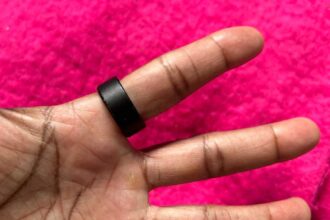Want to stay on top of the science and politics driving biotech today? Sign up to get our biotech newsletter in your inbox.
Today we have two FDA approvals, preview late-breakers at this weekend’s American Heart Association scientific sessions, and offer up your very favorite podcast.
The need-to-know this morning
• Cargo Therapeutics, a developer of CAR-T cell therapies, priced its initial public offering at $15 per share — the low-end of the proposed $15-17 range. The offering raised $281 million.
• Sell-side analyst news: Evercore ISI has hired Cory Kasimov lead research coverage of small- and mid-sized biotech companies. Kasimov spent 15 years at J.P. Morgan before departing in August 2022.
• Illumina reported lower-than-expected third quarter earnings and cut its revenue forecast for the remainder of the year and 2024, citing weaker industry demand for high-end sequencing equipment. The company continues to explore ways to sell its Grail cancer blood test division, following a divestiture order from European regulators.
• Mirati Therapeutics said European regulatory advisers recommended the approval of its KRAS-targeted drug, called Krazati, for the treatment of certain patients with non-small cell lung cancer. The new decision overturned a negative recommendation issued in July. Bristol Myers Squibb is acquiring Mirati for $4.8 billion in a deal announced in October.
• European regulatory advisers recommended an expansion of Eli Lilly’s GLP-1 diabetes drug Mounjaro to include the treatment of obesity.
What’s a radiopharmaceutical?
What does it mean to be Zepbound? And who’s to blame for a biotech blow-up? We cover all that and more this week on “The Readout LOUD,” STAT’s biotech podcast.
As so-called radiopharmaceuticals make headlines in oncology, we explore their fascinating scientific backstory and the biotech gold rush to make them. We also discuss the approval of Eli Lilly’s curiously named treatment for obesity, the latest implosion for a promising biotech company, and some news in the world of shareholder activism.
Listen here.
A chikungunya vaccine just got approved
The FDA yesterday approved Ixchiq, the first vaccine for chikungunya, a mosquito-borne virus that is increasing in prevalence in tropical and subtropical regions around the world. The disease’s most common symptoms are fever and joint pain, as well as rash, headache, and muscle pain. These symptoms can linger on for years.
Ixchiq, made by France-based biotech Valneva, is a single-dose injection containing a live, weakened version of the virus. The vaccine’s efficacy is based on immunogenicity alone: It tracked 266 participants who received the vaccine compared to 96 who received placebo — and the level of antibody measured in plasma indicated how much protection a person might have. The vaccine went through the FDA’s accelerated approval pathway, and will continue to be evaluated in confirmatory studies.
The shot will be voted on by ACIP, the CDC’s vaccine advisory committee, in February. It’ll likely be recommended for travelers, lab workers, or people living in U.S. territories where transmission might occur.
An ERT for blood clotting approved
The FDA has approved Adzynma, an enzyme replacement therapy made by Takeda for adults with a rare blood clotting disorder. Interim Phase 3 data in January showed that the drug reduced episodes of low platelet counts in the blood of patients with congenital thrombotic thrombocytopenic purport, or cTTP.
The disorder is caused by a mutation in the ADAMTS13 gene, which makes an enzyme involved in blood clotting. Treatment up until this point has involved prophylactic plasma-based therapy. Adzynma is given intravenously every other week to protect against clotting, or once daily for on-demand enzyme replacement therapy, the FDA said.
What’s on tap at AHA this weekend
This year’s American Heart Association scientific sessions will kick off on Saturday, and we have our eye on a few things. Most notably, perhaps, we’ll see detailed data from the SELECT trial from Novo Nordisk, which found in a study of about 17,000 people that Wegovy reduces the incidence of cardiovascular events. Top-line results were released this summer.
The first late-breaking slot will discuss how to achieve equity when it comes to using these GLP-1 drugs to treat obesity.
There are some other late-breakers of note, such as a discussion about the future of therapies that lower lipids in the blood. This will look at RNA medicines, monoclonal antibodies, and base-editing as novel options to improve coronary artery disease.
STAT will have coverage all weekend, so stay tuned.
More reads
• FDA clears Acon’s OTC home antigen test for Covid, Reuters
• Owlet soars to FDA nod for over-the-counter infant pulse oximeter, FierceBiotech
• Novartis plans BTK inhibitor filing in chronic spontaneous urticaria as Celldex’s mid-stage data excites investors, Endpoints





